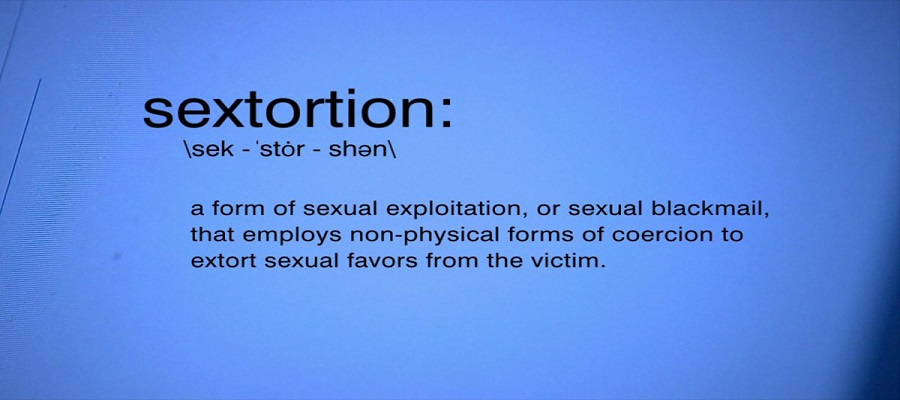General News
Agent Banks Will Tackle Issues on Financial Inclusion – Bickersteth

Sola Bickersteth is the president , Society for Agent Banking Network Practitioners and Chief Executive, One Network. He is PLD Graduate of the Harvard Business School, USA and an Electronics and Electrical Engineer from the OAU, Ile-Ife.
He worked as the pioneer chief operating officer (COO), Nigeria Internet Registration Association (NIRA). Bickersteth has over twenty three years experience in IT, executing projects like the ChamsCity at Chams Plc, the world largest digital facility as recognized by the Guinness book of World records, Online Payment System for Smartpay, National eGovernment,naira.com as well as a secure IP Network for International Monetary Fund (IMF), Central Bank of Nigeria, Department of State Services,INEC, etc.
He pioneered the introduction of low cost VSAT in Nigeria in partnership with Panamsat Inc in 2001 , oversaw the setting up of the Backbone Infrastructure for the then Public Service Network (PSNet now part of Galaxy Backbone).
In this interview with peter ugwu he explained the nitty-gritty surrounding the much expected Agent Banking regime in Nigeria.
One Network
We are a specialized agent network management organization. We are focused on creating one network of shared and structured agent locations for the provision of financial and citizen benefit services across the country.
Our cooperative framework allows interested agents to represent several financial institutions and related service providers at the same time through one network.One Network is the recognised industry leader in agent management and the implementation partnership for NIPOST and other leading Financial Institutions and authorized service providers.
Currently, the organisation has already built technical infrastructure that can be used by any interested organisation to manage networks of neighbourhood agent locations that provide public access to citizen and financial services.
Agent Banking
What Agent banking allows is that a shop owner, for instance a pharmacist can now become an agent or representative of a bank. Customers of the bank can then approach the pharmacist either to deposit or withdraw money, apply to open a bank account.
So they do not need to travel to the banking hall to transact every banking related business. A typical One Network neighbourhood location operates like a human ATM machine; but allowing much more functionalities similar to that of a mini-bank branch, providing numerous financial related value added services such as the money transfer, bill payments, public identity, micro credit, online business solutions and much more.
At a higher level, customers may be able to approach an agent and through the agent apply for loan. It is not the Agent that will give the loan, but he will be able to collect the loan applications and forward them to the bank.
It is the bank, however, that processes the application and sends it back to the customer through the agent. In other words, the customer on coming back to the Agent will definitely receive the bank’s response.
This can speed up the process of accessing loans, particularly as it concerns the low income or petty traders. It is a sure way to deepen the economic growth of the country, among other gains.
Deployment of Agent Banks
Agent banking in Nigeria, we must understand, is guided by the Central Bank of Nigeria (CBN). What everybody involved in the process is gearing up and engaging with the CBN to ensure that the details are properly sorted out.
The CBN has finally given the “Go” order, so as at today, authorised financial institutions can appoint agents and simply submit the details of that agent the CBN to commence business at that location.
Aside Nigeria, of course, there are other countries where Agent Banking has worked optimally.
We were recently part of a team including several banks,the Central Bank, the Central Switch, and others to understudy what is happening in Kenya.Other countries like Brazil , India, Peru , Tanzania have also embraced this model of enabling financial inclusion
Oiling the Infrastructure
We are at an advanced stage of infrastructure building, especially the Nigeria Postal Service (NIPOST)agent network support infrastructure is ready for the take-off. keeping in mind that this is a NIPOST project; we are just partnering with them on the project.
One of the most important things that NIPOST has done is that, today, a Postal Agent is not just providing postal services but also financial and citizens’ benefit services. So postal agents are no longer just for postal services.
That change has already been implemented. We have already commenced training of post offices staff.
The initial target is to meet the minimum requirements for Nigeria, which according to the Universal Postal Union (UPU) is 50, 000 post offices.
Presently, there is an audit of the post offices going on in Nigeria. There are about 1200 directly owned post offices which are those we are working with.
There is an additional 2500 postal agents; currently some of them are either operational, semi-operational or have shut down.
The CBN is trying to ascertain their states-how many of them have requisite infrastructure, staff strength, do they have power supply and other details that will help to access proper investments in the postal network by interested parties.
Ascertaining the Integrity Of Agents
Once again, we are strictly guided by the Central Bank and the Agent Banking guidelines are there.
The document stipulates who can become an Agent. For example, an Agent must have an on-going business; must have been in operation for at least one year; must be indebted to people and with evidences of financial stability.
The guidelines are there to protect the interest of the public and stakeholders. We are specific about Agent Banking; however, the real focus is to enable financial inclusion.
For us at One Network ,we deal with other financial service providers. We provide services to other companies that need Agents like in Insurance and Telecom companies, public identity registration projects and other value added service providers.
So, we ascertain the legitimacy of any service provider before their services can be available at any One Network Agent location.
Targets for Rural Areas
Agent Banking is basically targeted at the rural dwellers. They are the people who in the first instance are afraid of walking into the banking hall; so, if is a local setting they can easily go there.
Remember the Agents are located among them. It is not like these people do not have any money rather they, probably, have phobia of walking into a formal banking setting.
On the other hand, Agent Banking and cashless policy are part of the financial inclusion strategy of the Federal Government.
It is a combination of these platforms that the Central Bank projects that by year 2020 most Nigerians will have access to financial services
Complimentary to the Postal Reform
Actually, what we are doing at One Network is complementary to the on-going Postal Service reform.
In other words, we have aligned our activities under the guidance of the Ministry of Communication Technology and the Central Bank to ensure that it is in line with the agenda in place.
We are not a financial service provider under the scheme, but we provide professional agent management services and implementation support.
It remains a NIPOST project; we are just there to provide the nitty-gritty for enabling optimal execution.
Security Challenges
Well, the last time I checked, people still go to the market in those security volatile areas. Generally, insecurity is a reality in our country today, but it has not stopped us from doing business.
It only implies that people need to be more careful but the situation is not going to stop business from taking place.
Benefits of Agent Banking
If we use the Brazilian experience to equate it; they introduced Agent Banking about 10 years ago, as at February 2013 their economy outgrew that of the United Kingdom (UK).
The main reason was the introduction of the Agent Banking, because they were able to grow from 30% of the population being banked to about 80% presently. It has been very successful.
It aided them in capturing many people into their formal economy where they could then grow steadily and speedily.
In the actual fact, Agent banking is one of the fastest ways to achieve the Vision 20:2020. The successful implementation of the Agent Banking will boost the drive for financial inclusion.
Some Challenging Factors
The biggest challenge we are witnessing has been for industry players to understand and adopt the benefits of structured agent sharing . We (Nigerians) have a tendency to want to do things in silos.
The effort of bringing people together and sell the idea of coopeting instead of competing has not been easy.
The way to go is for financial service providers to take advantage of the One Network Cooperative scheme.
Our role is to help the industry players adopt the simpler and faster ways to achieve success.
However, we are encouraged because people are beginning to understand the purpose of One Network is to help the industry grow.
Role of Telecommunications in Agent Banking
Some time ago, someone asked if the Agent Banking has removed the role of the telecom operators from the banking sector.
Essentially, the question stemmed from the network problems we are witnessing in the country. But the truth is that the operators are needed in the process.
Telecom is still the heart of every agent location. One of the criteria is that every location must be well connected. So, the telecom operators have roles to play; first, to make sure that the network is reliable and stable as the Agents need quality service to excel.
The telecom operators can also use One Network to extend their services. For example, the SIM registration; each teleco is presently separately deploying agent networks for SIM registration, meanwhile all they needed to do is to synchronize the process through one network of agents.
That is how other countries implement their SIM registration. If you walk into a shop, they already have the application in the machine; they sell the card to you, no matter the network and register you immediately.
The registration goes straight to the database of the particular network. An agent must not carry five machines to register all the networks.
It is one of the things we anticipate in One Network to have integrated relationship so that an Agents will not need to carry multiple terminals for different service providers.
Targeted Locations
We are largely focused on rural areas.For instance, in some of our pilot locations in Benue State people no longer have to travel hours to do either JAMB registration or withdraw little cash. We see that it is already working.
On the number of targeted locations, the Central Bank has determined that target could reach 170,000 agent locations. For us, that is also our target.
Even in Kenya with about 40 million population, they now have about 80,000 Agents. Brazil which is closer to Nigeria in terms of population (about 190 million), they have about 170,000 Agents.
We are happy to support the CBN in bring the financial inclusion vision to fruition.
General News
FBI Sends Team to Nigeria to Track Down ‘Sextortion’ Scammers

Sextortion scams have become so widespread that the Federal Bureau of Investigation (FBI) is sending agents to Nigeria to help track down the perpetrators.

The agency’s “Operation Artemis” has led to the arrest of 22 Nigerians, half of whom are “directly linked” to sextortion incidents in which victims died by suicide.
Sextortion scams often begin on social media, where perpetrators pose as attractive young women to lure victims—typically unsuspecting teenage boys—into sending nude photos or explicit videos.
Once the images are obtained, the scammers turn to blackmail, threatening to leak the content unless the victim pays up.
In some cases, the sextortion results in teenage victims taking their own lives over fear of the nudes leaking.
In Thursday’s announcement, the FBI noted it’s been “observing a significant increase over the last three years in financially motivated sextortion schemes targeting young males ages 14-17, resulting in more than 20 minor victims dying by suicide.”
The agency is also facing a 30% year-over-year increase in sextortion-related tips.
“According to the FBI’s Internet Crime Complaint Center or IC3, there were over 54,000 [extortion-related] victims in 2024, up from 34,000 in 2023,” it said.
“Over the last two years there have been nearly $65 million dollars in financial losses due to this crime.”
In response, the FBI says 55 agency field offices came together to identify “nearly 3,000 victims of financially motivated sextortion,” which led investigators to track down the culprits in Nigeria.
The US has since extradited at least three suspects from Nigeria.
“These subjects will now be held accountable in the American justice system, with more subjects still awaiting extraditions in Nigeria,” the FBI added.
General News
FBNQuest Trustees Hosts Estate Planning Summit in Port Harcourt

FBNQuest Trustees Limited, a subsidiary of First HoldCo Plc, provider of trust solutions to individuals, corporate and government institutions, recently hosted its inaugural Estate Planning Summit in Port Harcourt.

The maiden event, themed: Wealth Preservation and Transfer without Hassle, was organised to strategically enlighten and empower the participants with the necessary knowledge required to seamlessly manage and successfully transfer their assets and legacies to their beneficiaries.
Speaking at the event, the Acting Managing Director, FBNQuest Trustees, Babajide Fetuga, stressed the critical importance of seeking professional guidance on estate planning, preservation and transfer of wealth to successive generations and other beneficiaries. He stated that a professionally drafted estate plan gives no room for any form of ambiguity; hence, it provides clear directives on what to do at any time.
‘’The potential consequences of not having an estate plan include perennial family disputes and protracted court cases, which may result in a huge financial burden and foster long-lasting resentments among loved ones if proactive steps are not undertaken to protect individuals, families and loved ones from avoidable stress.
‘’Understanding the values of wealth preservation is crucial. It is vital to recognize the importance of having a strategic estate planning blueprint, and we are determined to educate you with knowledge that not only informs but inspires you to take the necessary actions as you move forward,” he added.
FBNQuest Trustees is dedicated to promoting effective estate planning solutions. The company has a track record of successfully hosting estate planning summits in Abuja, Lagos, Minna and Ibadan and continues to emphasize the importance of thoughtful planning through initiatives like the Legacy Series Campaign and the Legacy Room podcast.
The summit featured industry experts who delivered valuable insights on the significance of wealth preservation and transfer, addressing the residents of Port Harcourt and its environs. The discussions focused on practical approaches and proactive measures attendees can adopt to manage their estates effectively and minimize potential future challenges.
General News
Meta Tightens Spam Controls to Elevate Original Content on Facebook

Meta has announced new measures to tackle spammy content on Facebook, aiming to enhance the Feed experience and support authentic creators. These updates are part of Meta’s broader commitment to fostering a platform where meaningful interactions thrive.

The initiative includes reducing the visibility of spammy content. Accounts that share duplicate posts, irrelevant captions, or excessive hashtags will lose reach and monetization eligibility. Spam networks that create multiple accounts to share identical content will also face decreased visibility.
Meta is increasing efforts to detect and remove fake accounts and pages involved in coordinated engagement or impersonation.
In 2024, the platform removed millions of such accounts. Features in Moderation Assist have been enhanced to auto-hide comments from suspected fake identities, and creators can now report impersonators directly in comments.
To further support original content, Meta continues to improve its Rights Manager tool, helping creators protect their work. Updated guidance aims to encourage creators to share authentic and engaging content to ensure their success on the platform.
Oluwasola Obagbemi, Head of Communications for Sub-Saharan Africa at Meta, emphasized the importance of creating an environment where creators who invest in meaningful content are recognized and rewarded.
Meta remains committed to fostering a positive and authentic environment for creators and users alike. Let me know if you’d like more adjustments!

 Telecom3 days ago
Telecom3 days agoNigeria Hits 1 Terabit Internet Traffic Milestone

 E-Financial3 days ago
E-Financial3 days agoFCMB Capital Markets Leads ₦11.85bn GLNG Bond for LNG Plant Expansion

 General News3 days ago
General News3 days agoFG to Introduce New Tax Credit Scheme to Replace Pioneer Status Incentive

 Telecom3 days ago
Telecom3 days agoMTN Nigeria Faces Class Action Lawsuit over Alleged Data Mismanagement

 News3 days ago
News3 days agoIMF Downgrades Nigeria’s Economic Growth Forecast Amid Oil Price Decline

 News3 days ago
News3 days agoNITDA Fixes Date for Inaugural Meeting of the Startup Consultative Forum

 E-Financial2 days ago
E-Financial2 days agoUnion Bank’s Edu360 Initiative Scores Big for Nigerian Football Development

 Telecom3 days ago
Telecom3 days agoMart Networks Unveils Invinsense 6.0: AI-Powered Cybersecurity Revolution in Africa




























